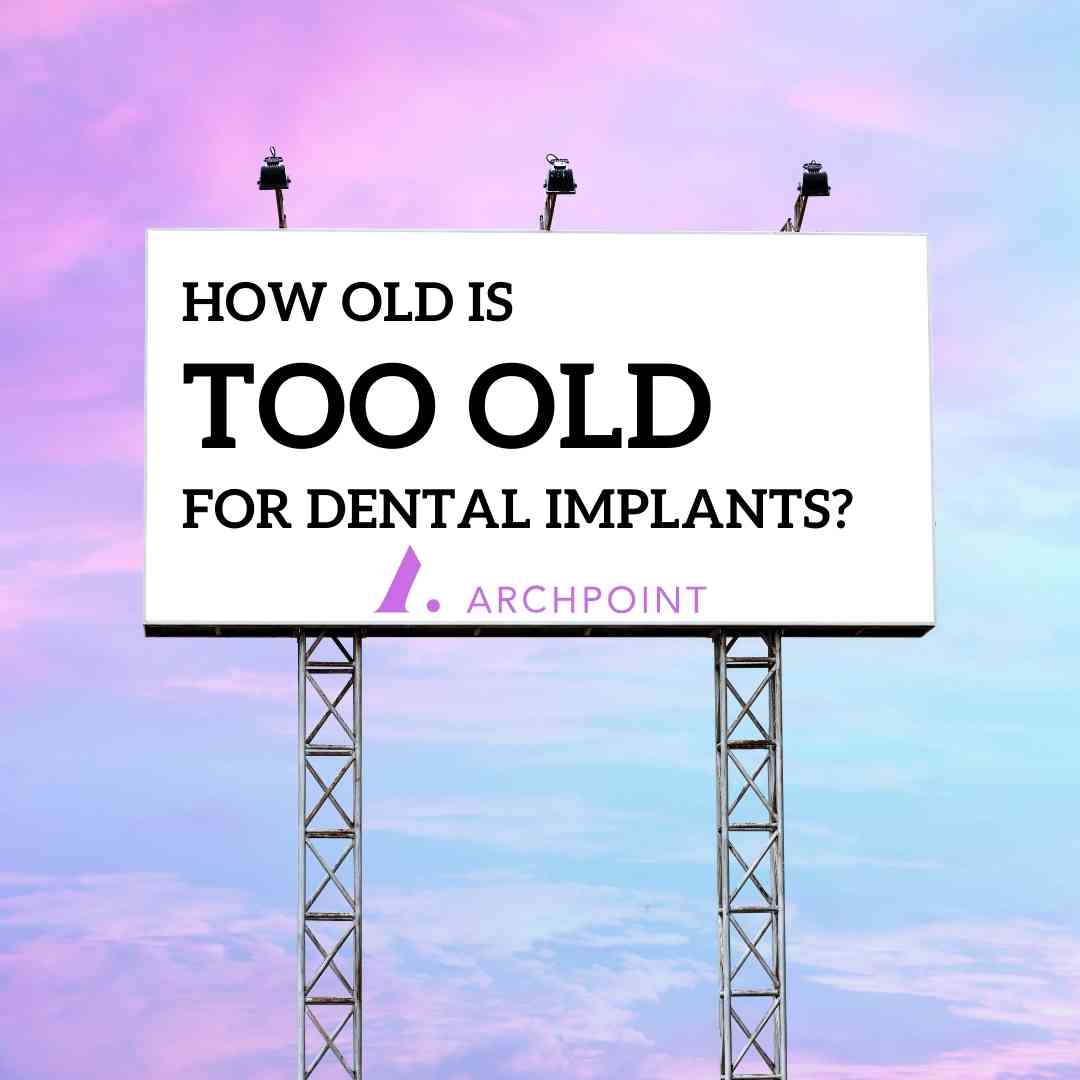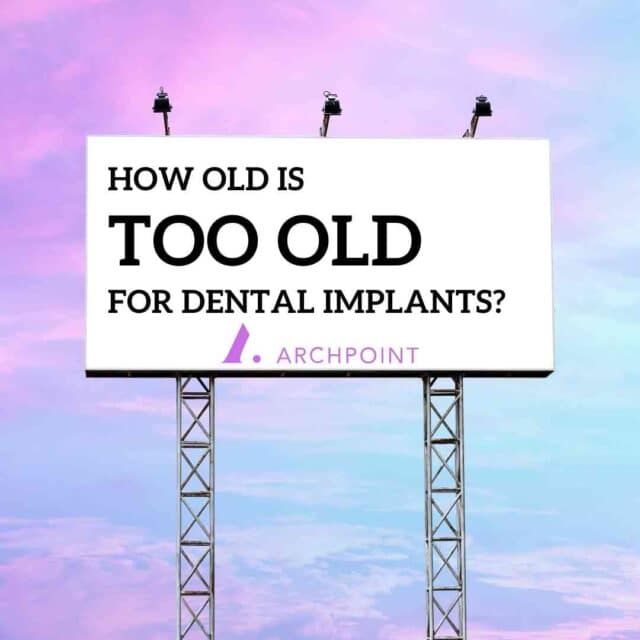
If you’re looking into getting dental implants, you might have wondered how old is too old for dental implants? There are many myths surrounding age and implants, some of which have no basis and others that have more truth to them than you might think. We’ll break down the truth behind the myths of age and dental implants so that you can make the most informed decision possible when it comes to your oral health.
Age Is Just a Number, Right?
Let’s set the record straight, age has nothing to do with dental implant treatment. That is, assuming that you’re old enough that your mouth is fully developed (we don’t place dental implants in children.) The truth is, people are living longer than they have in years and to stay healthy, we need teeth to eat with.
You’re not too old to get dental implants. Braces are a perfect example. More adults are getting braces today than ever before because they have better access to orthodontic treatment. Maybe their parents couldn’t afford braces when they were growing up and now that they’re fiscally independent, they can invest in treatment for themselves. It’s not uncommon to see people get braces in their 40s, 50s, or even their 60s. Dental implants aren’t all that different!
The Misconception That You’re Going to Lose All of Your Teeth
There is a common misconception that tooth loss is a natural result of aging. But that’s not true. Just because your parents may have gotten dentures at a young age doesn’t mean you will. At ARCHPOINT we encourage our patients to retain their natural teeth whenever possible. But if they have certain non-restorable teeth that need to be removed, or multiple teeth already missing, dental implants are the next best solution.
As we age, dental implants allow us to eat nutritious foods that we need for a healthy, functional immune system. Investing in replacing missing teeth, including getting dental implants, can help you stay healthier, longer. All the while, your dental implants can help preserve the adjacent teeth since they are non-invasive to other tooth structures. And we need that even more the older we get.
Are Dentures the Only Option If I Have Bad Teeth?
Dentures are a traditional tooth replacement that has been used not just for decades, but centuries. Partial dentures included. But today there are more options than ever when it comes to replacing missing teeth for functional purposes.
For example, dental implants can be used for single teeth, multiple-tooth dental bridges, clip-on overdentures, or even full-arch All-on-4 hybrid appliances. Dental implants improve chewing and speaking, decrease oral complications, and even help a person’s smile look better. You’re never too old to benefit from improved oral function, regardless of how many teeth are missing.
The Minimally-Invasive Design of Dental Implants
Dental implants are a minimally invasive procedure that is also safe for other teeth. The implant itself can usually be placed in a discreet surgical procedure using only local anesthetic (although sedation may be preferred if you’re getting multiple dental implants.) The conservative design of the implant and how it fits in the jaw also reduces discomfort and improves recovery after your surgery.
As an added bonus, dental implants are non-invasive to adjacent teeth. No healthy tooth structures need to be “ground down” or “reshaped” to create room for the implant, as you would see with a bridge or possibly even a partial denture.
Because dental implant surgery is minimal and straightforward, being older doesn’t typically prohibit you from requesting this type of treatment. That being said, if you’re on blood thinners or have recently had a joint replaced, among other things, you might still need a medical clearance from your physician. That’s something our ARCHPOINT implant dentists are happy to speak with you about.
Age and Bone Loss: How it Impacts Implant Placement
It’s easy to be confused by age and bone loss, but it doesn’t necessarily have an impact on your dental implant placement. Does aging cause bone loss in your jaws? Not necessarily. Healthy bone density in your jaws can remain fairly consistent as we age, depending on a few factors, including any medications that you’re taking. But there is one major thing to keep in mind. The longer you go with missing teeth, the more bone loss you’ll have in your jaws. And the more bone loss there is, the more challenging it can be to install dental implants.
That’s where working with a specialist comes into play. When you have an implant expert performing your procedure, you have access to a wider variety of treatment techniques. For example, switching out traditional implants with Zygomatic dental implants or mini dental implants. Or adding bone grafting and a sinus lift into your care plan. Whatever is needed to create the right foundation for your dental implants, the ARCHPOINT team of specialists can help make that possible.
The Longer You Wear Dentures…
Wearing dentures will take a toll on your jaw bone as the years go by. Long-term denture wear leads to continual pressure on your jaw, which then triggers bone loss. Your jaw bone, which is an important aspect of supporting your dentures, will shrink and become thinner over time the longer you go with missing teeth. And it can be amplified due to being in a continuous state of compression and tissue loss, especially if you ever make the mistake of sleeping in your dentures. Once your jawbone gets too thin, the more difficult it becomes to place any type of dental implant.
Is it Too Late to Get Dental Implants?
Even if you have thin bones, already show signs of bone loss, or are over the age of 60, you shouldn’t rule out dental implant treatment in DFW. The specialists at ARCHPOINT will gladly present you with all of your options and recommend the healthiest, safest treatment choices that fit your smile and lifestyle.
Implant Dentists in DFW
Reserve your dental implant consultation at ARHPOINT today. Call our Dallas or Fort Worth location now to schedule.








